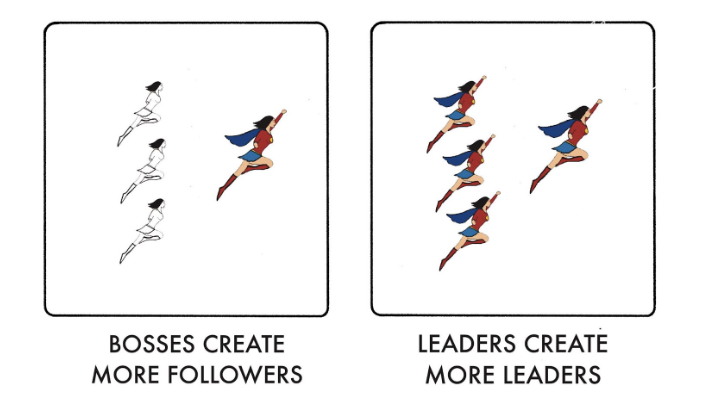You have 1 article left to read this month before you need to register a free LeadDev.com account.
Managing managers for the first time? Congratulations! Here’s what you need to know.
The leap up to senior engineering management can be challenging. Suddenly, you’re not just responsible for a single team of individual contributors (IC), but multiple teams, and the managers who lead them. Your scope has increased, and it’s now your job to grow and manage other managers, and deliver maximum value to the organization.
There’s no rulebook for getting it right, but there are some best practices all new senior managers can keep in mind. Here I’m sharing the top five lessons I’ve learned over the years to help you transition into your new role.
1. Lead through others
As a senior manager, it’s extremely important to lead through others. It’s easy to jump in and execute something yourself, but it’s much more difficult to do it through others. The more you grow, the harder it is to get everything done, and you need people in your team to do the work. The more effective you are in coaching others, the bigger the impact you will have. Remember, you need to ensure that the managers reporting to you have what they need and know what outcomes you’re looking for. If they are successful, you are successful as well.
You might be tempted to do a task yourself if it’s going to take you a few minutes and someone else hours. But there’s more value in training others, documenting how you would do the task, and delegating. You can see how they approach it and give feedback on how to improve, but let them execute. The next time the task needs doing, you’ll already have folks that know how to do it. This is how you empower the managers that report to you.
2. Be a leader, not a boss.

A boss dictates what needs to be done, but a leader coaches you to come to that answer yourself. A leader creates light bulb moments that help you to design plans for yourself. A leader creates more leaders.
A boss creates fear, anxiety and stress. It’s easy to be a boss and command your team, but if you take this approach, you’ll be commanding forever, and you’ll always have to repeat yourself. And will the people reporting to you ever be happy? I don’t think so. Why would your reports want to work for someone when the experience is so painful?
Instead of being a boss, focus on being a leader that asks good questions, listens, gives credit, and provides psychological safety. Everyone grows and learns faster when they’re coached, rather than when they’re being told what to do.
3. Switch your attitude from “them” to “us”
As a senior manager, you need to think of your company as your team, and act accordingly. This is truly a mindset shift and requires acting and making decisions differently.
Before, you could think of your team as “us” and the rest of the company as “them”. But at your new level, this attitude would block the company’s progress, which is your ultimate goal.
In times of crisis, it’s now your responsibility to brainstorm ideas for how the company can achieve its goals. From time to time, when sh*t hits the fan, take a step back and remember your priorities.
4. Focus on outcomes
The most important thing to focus on as a senior manager? Outcomes, outcomes, outcomes! If the outcome is for your team to accomplish certain objectives, it doesn’t matter who does it or when, as long as the outcome is achieved.
Wherever you can, try to finish every meeting with clear outcomes. Every person in the room costs a certain amount of money and energy to be there, and it’s not worth wasting valuable resources unless there are outcomes from the discussion. Also, focusing on outcomes is a great way to navigate any conflicts between team members.
5. Document everything
It’s so important to document everything. Figure out a flow that works for you, for example a time of day or week when you ask yourself what can be documented that hasn’t been already. Outline the pillars of documentation, assign folks who can contribute to it, and make it collaborative.
In the future, when things aren’t going as planned, or you’re away, you’ll have your documents that can help others. Documents can’t lie. Plus, documenting will allow better discoverability and visibility when you’re onboarding new folks.
My top tips are to create short Loom videos and showcase how you do things. This is really helpful in training others and providing historical context. Also, always share a work-in-progress copy of your documents, allowing others to provide feedback, chime in, and make updates alongside you. You will always get more feedback when you are still working through things than when you’re presenting a perfect version.




